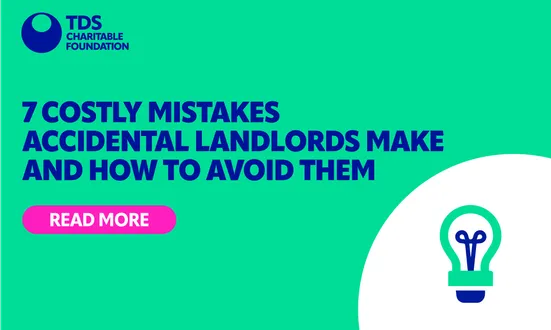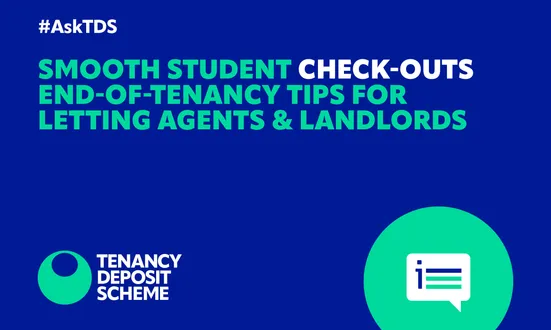The Tenancy Deposit Scheme (TDS) is a government-approved scheme for the protection of tenancy deposits; we offer both insured protection and custodial protection. We also provide fair adjudication for disputes that arise over the tenancy deposits that we protect. This article has been written in response to a landlord’s query: “Can I claim from a tenant’s deposit if I didn’t provide an inventory?”
A tenancy deposit is an amount of money taken by a landlord and held in security against the tenant’s obligations under the tenancy agreement. Deductions made from a tenancy deposit should be to remedy a loss suffered by the landlord and is most commonly to pay for cleaning, damage, or to settle rent arrears. If the tenant challenges the deductions, the burden of proof lies initially with the landlord to show that the tenant has breached the tenancy agreement and that the landlord has suffered a loss due to that breach.
Where the landlord’s claim is related to the condition of the property (as opposed to rent arrears), the starting point for the adjudicator is whether the condition has deteriorated between the start and end of the tenancy, beyond fair wear and tear.
Inventories are a common, tried and tested method of demonstrating the contents and condition of the property at the start and end of the tenancy, and are usually a key piece of evidence to support a claim.
I have a check-in report and a check-out report, but no inventory – will I still be able to make a claim?
The terms check-in report, inventory and schedule of condition are often interchangeable. In its purest form, an inventory is a list of items. A schedule of condition includes the decorative state of the property, cleanliness, and condition of furniture, fixtures and fittings. In the absence of such documentary evidence at both the start and end of the tenancy, it will be difficult to show that the condition has changed.
There are circumstances where other evidence can be helpful, such as detailed cleaning invoices from just before the start of the tenancy or a receipt for a brand-new oven. The Tenancy Deposit Scheme is not prescriptive about the evidence one must have, but we do recommend that you have a thorough check-in and check-out report as, in our experience, that is the best possible evidence and should assure all parties that the condition of the property has been recorded and agreed upon.
In short, if all parties agree to the deductions, the Tenancy Deposit Scheme will never ask for any supporting documentation. However, if a dispute is raised over the return of the deposit, you are more likely to be successful in your claim if you have documentary evidence, such as an inventory/check-in report. Typically, where the claim is due to a change in the condition of the property (as opposed to rent arrears) we would expect to see the tenancy agreement, check-in and check-out reports and quotations, invoices or receipts to quantify the extent of the loss.
For more information on how to prepare for adjudication please visit the guides section of our website or why not enrol on our TDS Academy Workshop.
About TDS
The Tenancy Deposit Scheme is part of The Dispute Service (TDS), the largest tenancy deposit protection (by value) and resolution service provider in the UK making life easier for tens of thousands of agents, landlords, developers, and millions of tenants and homebuyers.
Our award-winning customer service is highly rated on both Trustpilot and Google, and we’re backed by the NRLA. We offer free deposit protection in our Custodial scheme and the lowest rates for landlords in our Insured scheme.

Other news stories


